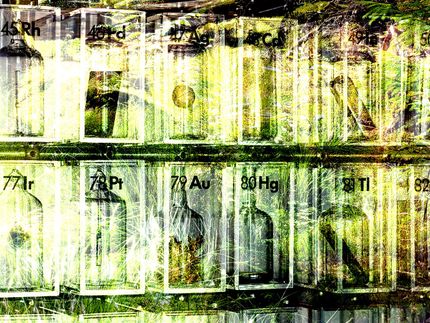The chemical industry needs better framework conditions for solid growth
Half-year press conference 2016 of the chemical-pharmaceutical industry
Advertisement
Business is not going smoothly in Germany’s third largest industry. Production in the chemical-pharmaceutical industry stagnated in the 1st half 2016. Sales fell clearly, as compared with the previous year: With another drop in producer prices, sales of this industry declined by 3.5 percent to 90.4 billion euros. That equally impacted domestic and foreign business, so the German chemical industry association Verband der Chemischen Industrie e. V. (VCI) at its half-year press conference.
VCI President Marijn Dekkers on the business development of the industry: “Positive impulses are lacking for chemistry – both economically and politically. At the same time, the negative factors are increasing: like the growth weakness of emerging markets, low dynamics in global trade overall, and the end of the worldwide investment boom.” For the 2nd half 2016, too, the VCI President is expecting headwind for chemical business. The positive effects of special factors, i.e. the low oil price and the weak euro, are wearing off. Dekkers: “Moreover, the Brexit and strong fluctuations of raw material prices and exchange rates are adverse framework conditions for solid growth in our industry.”
Against this backdrop, for the overall year 2016 the VCI is now expecting a production increase by only 0.5 percent for the German chemical-pharmaceutical industry. With further falling producer prices, sales by this industry should drop by 1.5 percent to 186 billion euros, so the VCI’s forecast.
Chemical industry location Germany: competitiveness at risk
For around a decade, Germany has been the “world champion of exports”. In terms of sales, Germany ranks third in a comparison of countries. All the same, there are more and more signs that the competitiveness of this location is crumbling – because structural changes in the USA, in China and Saudi Arabia, which have led to low energy and raw material costs and a massive building of production capacities in these regions, have impacts that are felt in the heart of Europe. Dekkers emphasized: “A look at the various sectors of our industry shows that this is an acute problem already today.”
When excluding the pharma business from the calculations, the foreign trade surplus of German chemistry is already falling. In 2015, there was even a foreign trade deficit in the petrochemical sector. Also in the business with plastics (polymers), there is the threat of a worsening trade balance. Since 2011, polymer production in Germany has dropped by 500,000 tonnes per year. This effect multiplies in the value chains. Over the same period of time, the volume of relevant inputs (petrochemicals) shrunk by 4 million euros (-6 percent). VCI President Dekkers: “For us, it is essential to prevent a tearing of chemical value chains in the individual segments. It is in the interest of downstream industries – like the automotive and electrical industries – and of the economy as a whole that we maintain these value chains as the central element of the chemical industry location Germany.”
The industry’s investments in production plants show an unsettling development too. Even though financing conditions are more favourable than they had been over many decades, companies are taking a rather reserved attitude regarding investments in Germany. Since 2011, the gap between domestic and foreign investments has been widening more and more. Most recently, foreign fixed asset investments by German chemical companies amounted to well over 8.6 billion euros; this total exceeded domestic fixed asset investments by ca. 1.5 billion euros. The VCI President attributes this loss in attractiveness of Germany – as a location for chemical plants – to a number of factors: high energy costs, lack of planning security in the energy policy, neglected infrastructures and an admin-istrative practice critical of industry. Dekkers stressed: “Better framework conditions for investments are vital for the chemical industry. This means: reliable political requirements and competitive costs.”
For a more innovation-friendly policy
Irrespective of many individual problems, the VCI sees an improvement in the ability to innovate as the key to more competitiveness: “We need more inno¬vations to permanently secure growth, prosperity and employment – in Germany and also across Europe.” In this context, stronger competition calls not only for investments in modern fixed assets, it also calls for more innovative products and production processes and for new business models. According to Dekkers, too many obstacles remain for a fast and successful way of ideas from the laboratory to product launches on the market.
Also, external obstacles in the sphere of responsibility of politicians and public authorities – e.g. excessive bureaucracy and regulation or the lacking fiscal incentives for research and development – reduce the ability to innovate. Therefore, at the national level in Germany the VCI President speaks for an “innovation check” to examine prior to the adoption of new legislation whether it is innovation- and consumer-friendly. Regarding legislation in Europe, Dekkers advocates the introduction of an innovation principle.
Dekkers: “German industry alone cannot make Germany a world champion in innovation. We need support from the political arena. We need to work as one, and we need to make sure that there is a good societal environment: for an innovation culture that combines openness and curiosity with courage and confidence – so that ideas can become innovations.”

































































